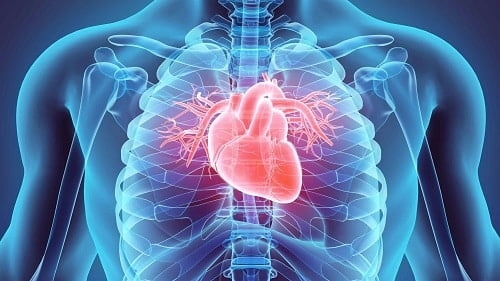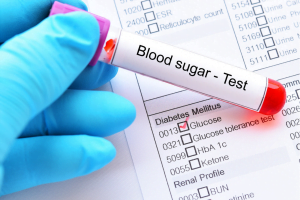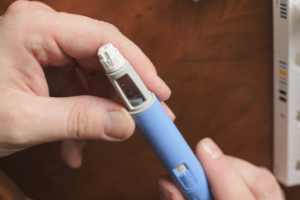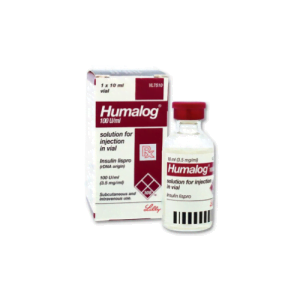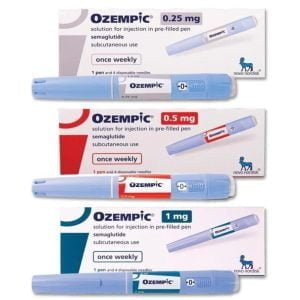Patients with type I or II diabetes are more likely to develop cardiovascular diseases (CVD), such as coronary heart disease (CHD). Heart conditions are particularly prevalent in patients with poorly managed diabetes. In fact, coronary heart disease is the leading cause of death in diabetic patients, accounting for around 80% of total deaths.
Apart from cardiovascular diseases (e.g. heart attacks), diabetic patients are also at a higher risk of developing hypertension (high blood pressure), strokes, and vascular problems (such as poor circulation). Similar to diabetes, cardiovascular diseases can be asymptomatic. This is why they often go undetected. According to a 2017 report published by Diabetes UK, middle-aged men who have diabetes are five times more likely to develop cardiovascular diseases. Female diabetic patients, on the other hand, are eight times more likely to have a CVD. In addition, over half of the patients who have type II diabetes show signs of cardiovascular disease complications during diagnosis. Many people have the misconception that heart conditions only affect the elderly. In reality, even diabetes patients under 30 years old may get cardiovascular diseases. Both type I and II diabetes can increase the risk of developing heart conditions.
Risk factors
It is believed that hyperglycemia (which characterizes diabetes) along with other risk factors such as free fatty acids in the blood may alter the composition of blood vessels. This significantly increases the risk of CVD. At the same time, the thickness of blood vessel lining may increase, thereby impairing blood flow. In general, diabetics are more likely to experience heart problems and strokes.
Symptoms of cardiovascular disease
Cardiovascular disease is usually characterized by symptoms such as swelling of ankles, irregular heartbeat, short of breath and chest pain. To be diagnosed with a cardiovascular disease, patients are required to take an electrocardiogram (EKG). Angina (or chest pain) is one of the main symptoms of coronary heart disease. There are two major form forms of angina: stable and unstable angina. Stable angina may cause transient pain in the chest (e.g. heavy, dull or tight pain) that lasts for several minutes. The pain is often triggered by factors such as cold weather, stress or physical activity. Patients should see a doctor right away if they experience signs of stable angina.
If the symptom persists for more than five minutes (or occurs in the absence of triggers), the patient may have unstable angina. Seek medical help urgently in the case of a suspected unstable angina. In contrast, heart attacks are commonly a result of a clot that prevents blood supply to the heart. Some of the main symptoms of heart attacks are tightness of chest, coughing, shortage of breath or intense pain in the center of the chest. Occasionally, patients may also experience anxiety.
Reducing the risk
It is possible to reduce the risk of cardiovascular diseases through lifestyle modifications such as dietary change and exercise. At the same time, smoking cessation is known to lower the risk of developing CVD in diabetic individuals. Diabetes patients should also limit their alcohol intake in order to prevent heart conditions. Patients should devise the prevention plan based on medical advice. As a precaution, diabetics are advised to check their blood pressure and cholesterol level at least one time a year. Perhaps more importantly, patients should keep their blood glucose levels under control. This is essential in both diabetes treatment and prevention of CVD. Research has shown that a 1% reduction of HbA1c may decrease the risk of cardiovascular disease by as much as 16% in patients with type II diabetes.
Additionally, pharmacological interventions may help to reduce the risk of cardiovascular disease. This includes medications such as low-dose aspirin, statins, calcium channel blockers, and ACE (angiotensin-converting enzyme) inhibitors.
—
Disclaimer: Please note that the contents of this community article are strictly for informational purposes and should not be considered as medical advice. This article, and other community articles, are not written or reviewed for medical validity by Canadian Insulin or its staff. All views and opinions expressed by the contributing authors are not endorsed by Canadian Insulin. Always consult a medical professional for medical advice, diagnosis, and treatment.

